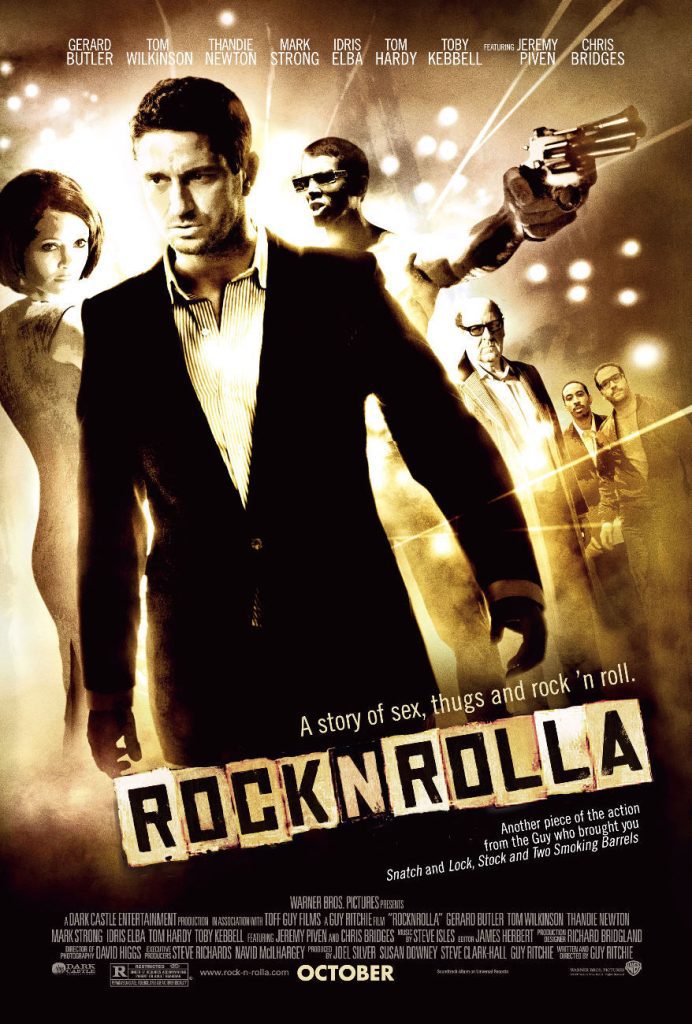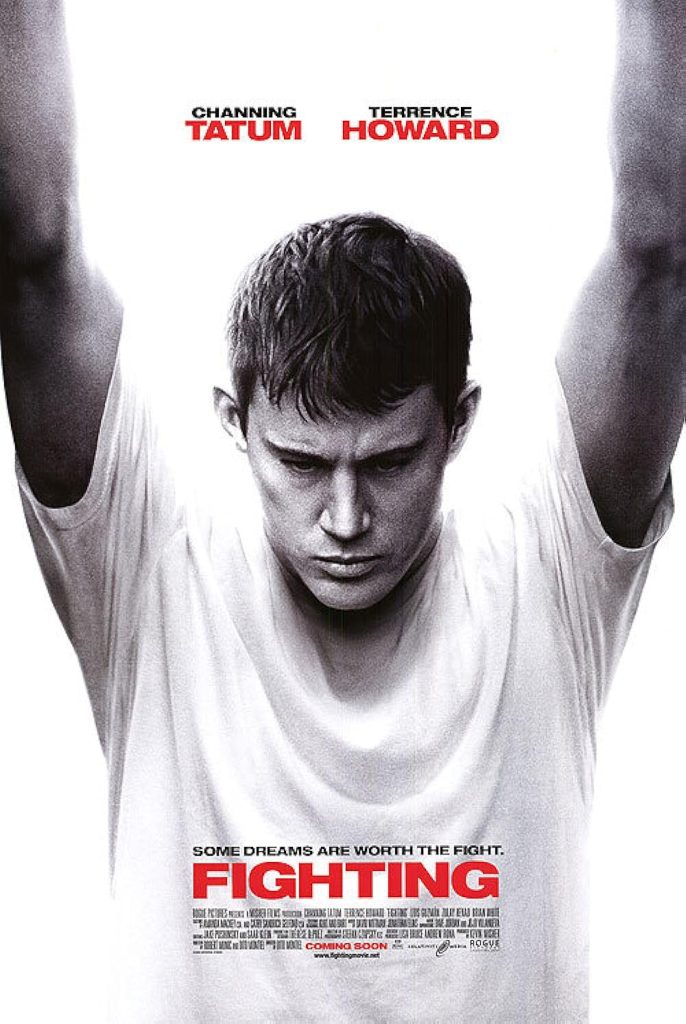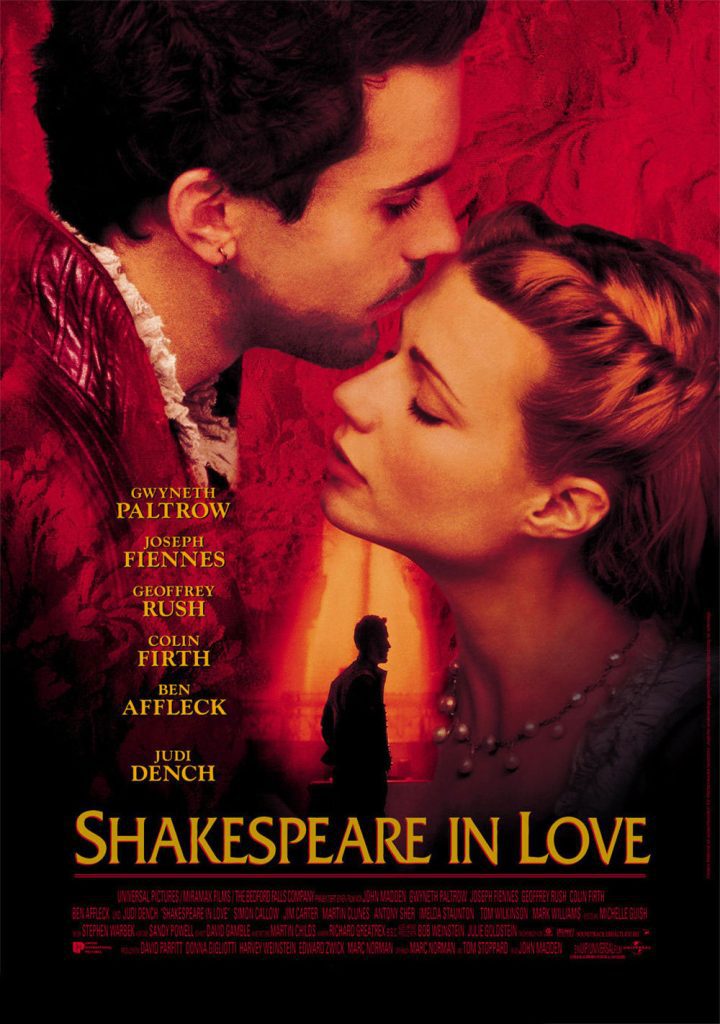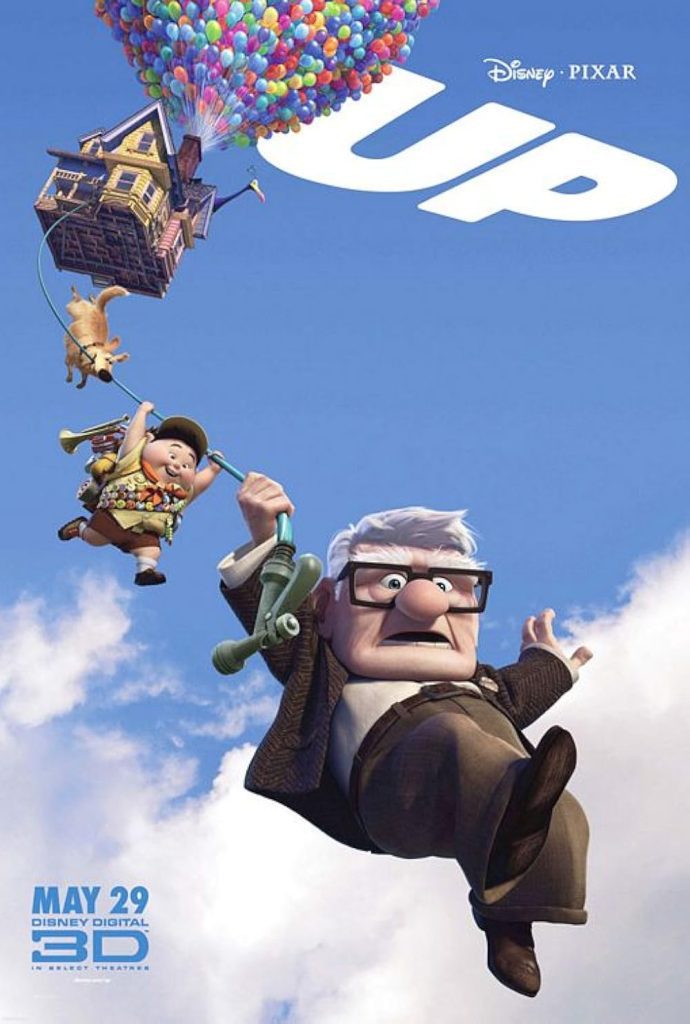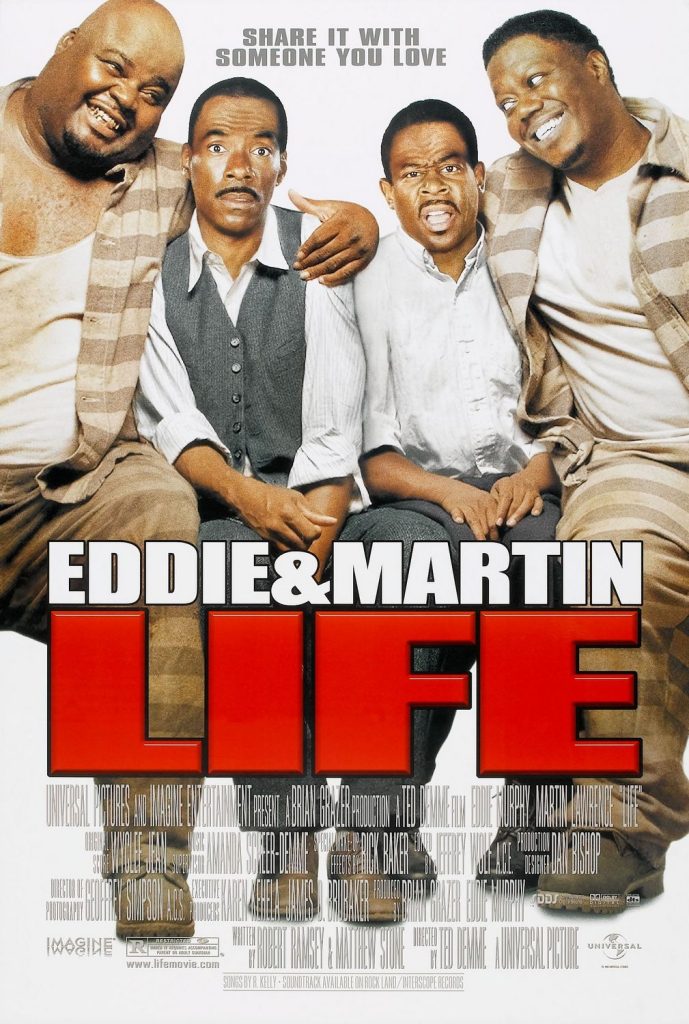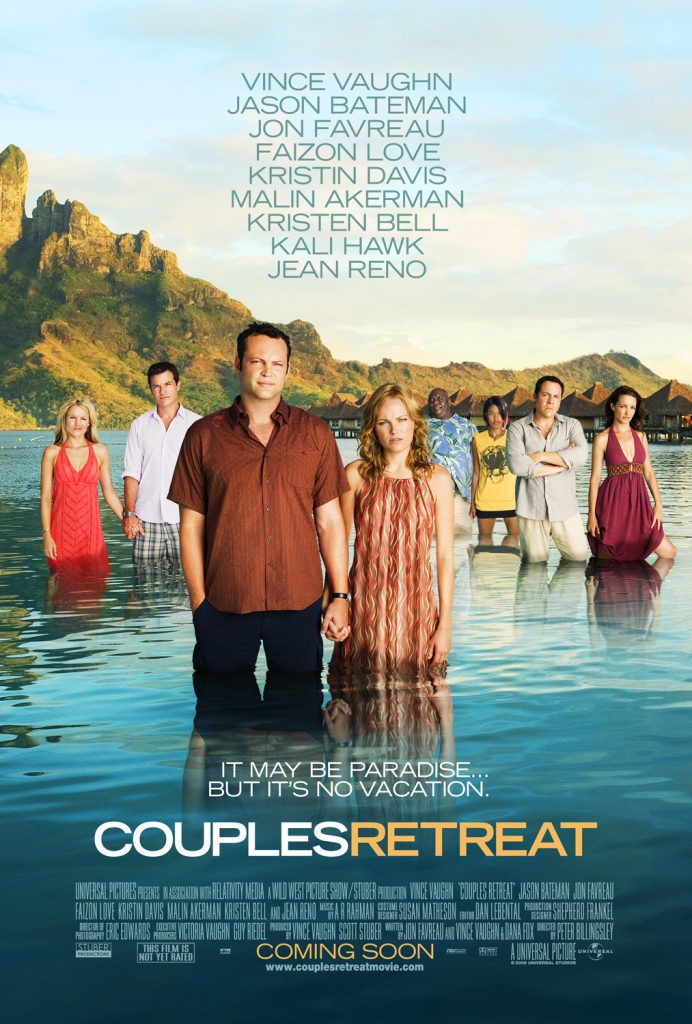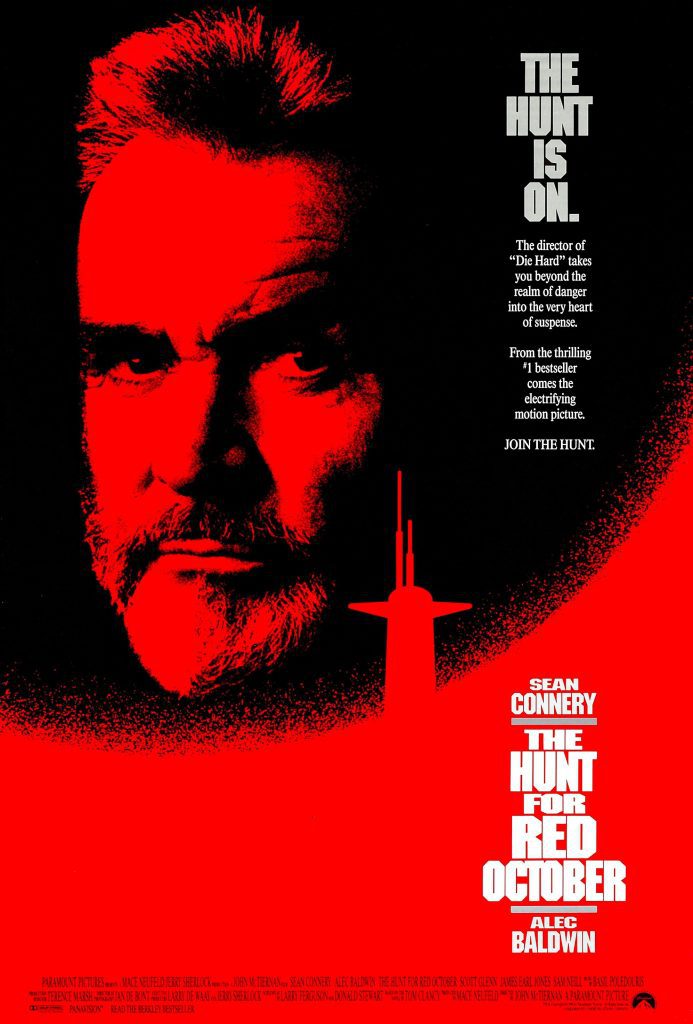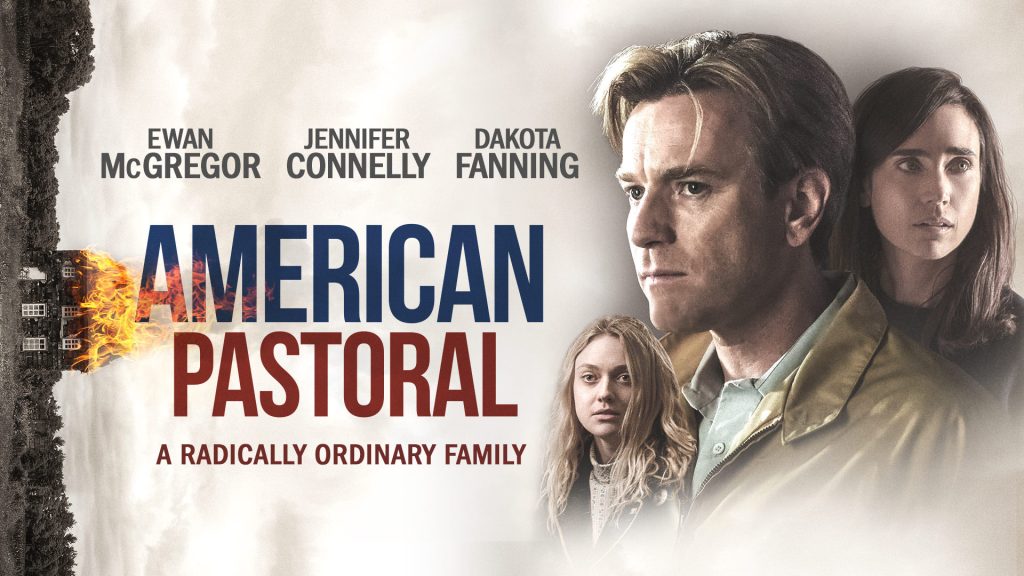
Newark, New Jersey’s Weequahic High School Class of 1944 graduated a certified legend in Seymour “Swede” Levov (Ewan McGregor, Big Fish). An all-star athlete who’d earned his own trophy case full of awards, this exceedingly intelligent, charming and handsome young man not only distinguished himself as “one of the fair-complected students in the predominantly Jewish public school,” but indeed, as the only member of his class to possess “the Viking mask” of a true, blue-eyed hero.
Following a hitch in the Marines–just missing out on World War II–Swede returned to help run his father’s profitable glove-making factory and take for his bride the most beautiful goy in the world–former Miss New Jersey contestant Dawn Dwyer (Jennifer Connelly, A Beautiful Mind). Emblematic of successful young postwar couples, the Levovs moved out of the city, settling in the bucolic farm community of Old Rimrock, where they welcomed a beautiful, blonde daughter named Merry (Hannah Nordberg, Longmire).
See the happy family gathered together to enjoy the picture perfect twilight settling upon their little patch of heavenly earth… American Pastoral, indeed.
If only the nineteen sixties hadn’t come along to spoil everything. The escalation of the Civil Rights movement and U.S. involvement in Vietnam coincides with Merry’s (now played by Dakota Fanning, The Runaways) turbulent adolescence, and when she’s not stomping around the house, ridiculing her hopelessly square, “contented, middle-class” parents, she’s taking the train into New York at night to meet with a mysterious group of friends, who may or may not be influencing her increasingly hate-filled rants about President Lyndon Baines “Baby Burner” Johnson, and her vows to loot, burn and destroy “everything that is good and decent in Honky America.”
Like many self-proclaimed liberal parents of the era, Swede and Dawn–who also oppose the war–struggle to understand how and why they’ve become the enemy. Haven’t they always been loving and supportive of Merry? Haven’t they always been open-minded and permissive? Haven’t they always encouraged open lines of communication? Why do they seem to be losing their daughter, nonetheless?
This last goes from being an academic to an actual question when, following the deadly bombing of Old Rimrock’s post office, Merry–officially identified by local and federal authorities as a person of interest–disappears completely. Has she gone underground? Has she been duped? Could she actually have been involved? Regardless of the answer, Swede resolves to locate her, preferably before the law gets hold of her.
American Pastoral is the latest in a spate of Philip Roth novels translated for the big screen, and like those before it, suffers for the simple reason that Roth–unquestionably America’s premier man of letters–writes books, not film treatments. Cinematic translations of his work are invariably truncated, resulting in episodic and hollowed-out hybrids that fully satisfy fans of neither medium.
First, there’s the disastrous decision to tell the story in flashback, as per an unreliable narrator–in this case, Swede’s brother, Jerry (Rupert Evans, The Man in the High Castle). Why unreliable? Because, despite a couple of appearances on the periphery of events, Jerry wasn’t there and as such, wouldn’t have the detailed knowledge required to relate such an intimate tale. Compounding the problem, American Pastoral–the film–adds a second narrator in Nathan Zuckerman (David Strathairn, Limbo), the man Jerry tells this story to. Confused? Naturally. Never mind how the novel is set up, this flashback/double-narrative device only succeeds in drawing attention to itself by book-ending a story that didn’t require an outside narrator in the first place.
To be fair, Ewan McGregor–making his directorial debut here–deserves credit for coaxing wonderful performances from Connelly, Nordberg, Fanning and several supporting actors, including Peter Riegert (The Sopranos) as Swede’s father and Valorie Curry (House of Lies)–who easily establishes herself as the picture’s most dynamic presence–in the role of fellow anarchist Rita Cohen.
Unfortunately, he lets himself down on two fronts. Though the Scottish actor effectively establishes himself as a harried, middle-aged American businessman, McGregor never manages to embody that “Viking mask” of Swede; the legendary, athletic aura that makes the story of this man’s downfall so compelling.
As a director, McGregor gets the opening scenes of quiet, picturesque splendor just about perfect (no doubt aided by Martin Ruhe’s crystalline cinematography), but then, he never seems to switch gears and thus, American Pastoral fails to adequately capture the raging and chaotic essence of the ‘sixties, where battle lines transgressed societal and geographic lines. Adding insult to injury, his consistently careful and measured directorial tone actually begins to drag the film down, making its slim one hundred and eight minutes feel entirely overlong.
For what it’s worth, Lionsgate brings the studied prettiness of American Pastoral to Blu-ray with a gorgeous 2.40:1/1080p transfer. Likewise, the 5.1 DTS-HD Master Audio English track does all that it should and there’s an additional 5.1 Dolby Digital Spanish track available, with optional subtitles in both languages also provided.
Strangely, the packaging advertises a Blu-ray and Digital HD combo set, but inside you’ll find–in addition to HD instructions and UV code information–a DVD copy of the film, which contains all the same features found on the Blu-ray.
Extras include an audio commentary track by McGregor and two featurettes: Adapting an American Classic, and Making of the American Dream. Normally, I’d write these off as standard EPK items–basically self-congratulatory puff-pieces, perfect for programming between features on cable networks, but Adapting an American Classic distinguishes itself with the egregious commentary of screenwriter John Romano (Beverly Hills Buntz, Cop Rock), who–with a straight face, mind you–says that, while reading it, “The book said: ‘Please rearrange me for the big screen.”
Excuse me, Mr. Romano, but I’m absolutely sure that Philip Roth’s Pulitzer Prize winning novel did not, in fact, beg you–or anyone else–to bowdlerize it for the big screen. At least you had the good taste not to suggest that the novel actually thanked you for the job you did on it.
For more movies visit Soap2day.

